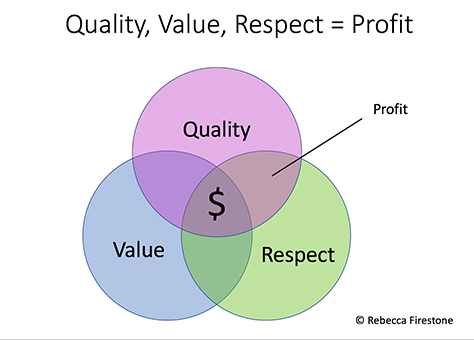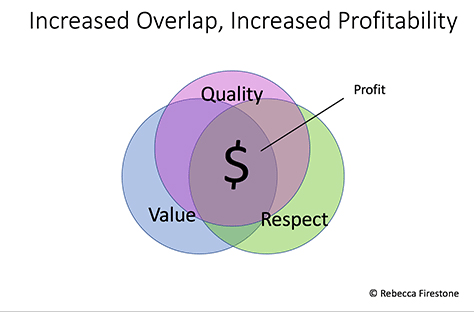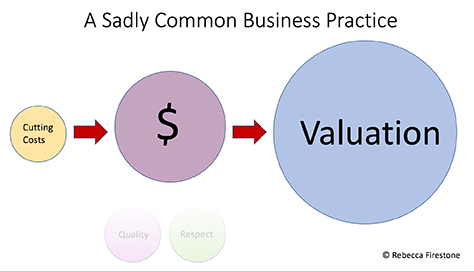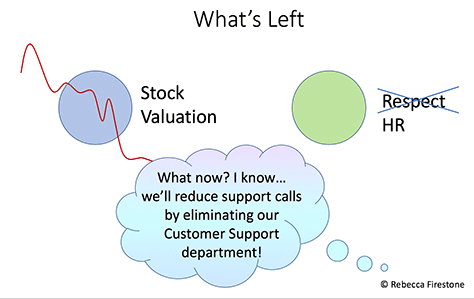
The advice in this article is for anyone seeking technical-documentation services, whether you’re working with contractors or full-time hires. This advice will help you to engage individual writers—especially if you’re one of those people who asks, “Why can’t I find any decent tech writers?” then adds, “who will work for a pittance.”
Value
Good documentation can save you time and preserve your company’s reputation. It can reduce the risks of aggravation, mistakes, support calls, damage to expensive equipment, regulatory difficulties, protracted lawsuits, and other costly setbacks. It can also improve employees’ productivity by giving them better training and helping them to be better prepared for their work.
Value your content as a long-term investment. Don’t try to assign a dollar value to every word. If you don’t care what your content says, use a bot.
Quality
Quality is a hot buzzword. Everyone claims to have quality. Companies devote entire departments to nothing but quality—or at least to quality control. Companies treat quality as a measurable substance like salt or an element on the periodic table. Yet, not having quality can sometimes ruin a company overnight.
The greater the overlap among quality, value, and respect, the better, as Figure 2 shows. However, if these become conflicting priorities, the resulting lack of integrity will eventually negatively impact your company’s profitability.

I’d like to propose a sort of Murphy’s Inverse Law of Quality: The more a company talks about quality, the less quality it actually has.
Appreciate that quality is an intrinsic state of being—beyond its measurable characteristics—and has real, immediate, and tangible value. If you think there’s no such thing, I ask you: How can people distinguish between Itzhak Perlman and a student violinist playing the same piece of music? I’d also refer you to the book Zen and the Art of Motorcycle Maintenance—but that’s such a maddening book—so maybe Shop Class as Soulcraft would be a better read on this topic.
Be very clear about what high-quality content means for you. Technical writers usually think quality means accurate, helpful, and easy to use. For companies, however, the meaning of quality in relation to content may be that it protects us from liability or, perhaps, helps us to look plausible and makes people think we have a real product when we don’t.
In my opinion, good content is robust, long lived, maintainable, and serves multiple purposes and audiences, without requiring constant rewrites. If a technical manual is clear, accurate, coherent, and visually attractive, the same manual can serve simultaneously as a training aid, a customer-support tool, a sales tool, a regulatory supplement, and an internal resource for everyone from high-level executives to new hires. High-quality manuals inspire trust in your company and in your company’s products or services.
It’s hard to quantify the benefits that derive from ongoing customer confidence and trust, but these assets are the core of your company’s brand reputation. Companies with bad reputations don’t always go out of business, but brand aversion can damage a company in all sorts of unexpected ways beyond simply losing sales.

